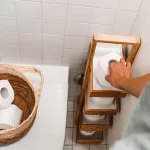Let me ask you something: Have you ever found yourself brewing that second cup of coffee, gazing out the window, and thinking, “Is it time for a change?” Or maybe it’s not you, but someone you love—your mom, your granddad, a neighbor you check up on. Life moves, routines shift, and suddenly, what used to work… doesn’t. Not in a big dramatic way, but in those little, nagging ways that sneak up on you. Like, the stairs seem taller, the nights feel longer, and those “just in case” phone calls become more frequent.
If you’re wrestling with the whole senior housing vs assisted living debate, you’re not alone. It’s confusing, emotional, and sometimes downright overwhelming. I’ve been there, holding hands with family in living rooms and hospital waiting areas, sorting through brochures and well-meaning advice. And you know what? The difference between these options isn’t always clear. But it matters—a lot.
So, pull up a chair. Let’s have an honest, human-to-human conversation about what makes senior housing different from assisted living, what’s right for different situations, and how to spot when it’s time to make a move. I promise, no jargon that leaves your head spinning, just real talk and useful answers.
Understanding Senior Housing vs Assisted Living
What Is Senior Housing?
Alright, let’s start simple. Senior housing is a big umbrella. Think of it like a neighborhood where everyone’s at a similar stage in life—retired, mostly independent, but wanting some community and maybe a few comforts. It comes in flavors: independent living, retirement communities, even personal care homes (which, by the way, are a whole topic on their own—more on that soon).
Picture this: You’re still doing your own thing. You might cook your own meals, come and go as you please, but there’s a front desk, maybe some group outings, and a few friendly faces always nearby. It’s like living in an apartment complex with a dash of hotel service and a sprinkle of summer camp fun.
Types of Senior Housing
- Independent Living: For the go-getters who just want less hassle (think: no more shoveling snow or fixing the faucet at midnight).
- Personal Care Homes: A step up in support, but not quite full assisted living. Usually some help with meals, meds, and daily routines.
- Retirement Communities: These are like mini-towns—sometimes with golf carts, pools, and movie nights. Mostly independent, but help is nearby if you need it.
Is senior housing right for you or your loved one? If you’re looking for company, less responsibility, and a safe, cheerful environment—but you still want to live life on your terms—it might be a perfect fit.
What Is Assisted Living?
Here’s where the plot thickens. Assisted living is for folks who need a hand with the basics—maybe it’s dressing, bathing, or remembering to take medications. But it’s not a nursing home (hold that thought, I’ll get to that later). You still have your own apartment or suite, you still have privacy, but there’s a team ready to jump in when you need it.
The goal? Keep you as independent as possible, for as long as possible, but with peace of mind for both you and your family. If you or your loved one have started to struggle with those daily “little things,” assisted living can be a lifesaver—literally and emotionally.
Key Features & Services Offered
- 24/7 staff and emergency response
- Help with medication, meals, bathing, dressing
- Housekeeping and laundry
- Planned activities and outings (bingo, anyone?)
- Health monitoring and transportation
And yes, I’ve seen families breathe huge sighs of relief when they realize they don’t have to do it all alone anymore.
Five Key Differences Between Senior Housing and Assisted Living
Let’s get down to brass tacks. What really separates senior housing vs assisted living? Here’s a breakdown that makes it crystal clear. (And hey, if you’re a fan of lists, this one’s for you.)
| Area | Senior Housing | Assisted Living |
|---|---|---|
| Level of Independence | High—mostly self-sufficient | Moderate—needs help with some daily activities |
| Care & Support | Minimal, mostly social & safety | Personal care, medication, daily living support |
| Cost | Lower, covers rent & amenities | Higher, includes care services |
| Community & Activities | Active, social, independent events | Planned, often supervised, more inclusive |
| Medical Access | Limited, emergency only | On-site staff, regular check-ins |
Level of Independence
Imagine your ideal day. Are you still making coffee, running errands, and only needing a neighbor to water your plants while you travel? That’s senior housing. But if getting dressed is starting to feel like a wrestling match, or you find yourself skipping meals because it’s “too much work,” then assisted living might be worth exploring.
Care and Support Services
This is where the difference between personal care and assisted living gets real. Personal care homes might help with meals or reminders, but assisted living offers a team for daily, hands-on help. If safety, health, and dignity are on your mind, don’t brush off the value of an extra set of caring hands.
Cost and Payment Options
Let’s talk numbers for a second (I know, ugh). Senior housing is kind to your wallet—it’s mostly rent, utilities, and maybe a meal plan. Assisted living, though, is more expensive because you’re paying for help and peace of mind. And honestly? That peace of mind is priceless. Still, it’s wise to compare costs, check insurance, and ask about financial aid.
Social Life and Community
Both options offer community, but they vibe differently. Senior housing is a “choose your own adventure” kind of place—you can join in or do your own thing. Assisted living, on the other hand, offers more structured activities, so if you (or your loved one) are feeling isolated or bored at home, these communities can feel like a breath of fresh air.
Safety, Security, and Medical Access
Here’s a gut-check: if you’re worried about falls, medication mishaps, or what would happen in an emergency, assisted living brings an added layer of safety. Staff are there, day and night, and there’s usually a nurse or trained caregiver just down the hall.
Deciding What’s Right: Senior Housing vs Assisted Living
When to Move from Independent to Assisted Living
This is the million-dollar question. There’s no flashing neon sign that says, “Now’s the time!” Sometimes it’s a series of small moments—a forgotten stove, a missed doctor’s appointment, or a bruise that no one can explain. Other times, it’s a health scare that puts everything into perspective.
Here’s a little story: My aunt, fiercely independent and stubborn as a mule, resisted the idea of assisted living for years. Then one winter, she slipped on ice and spent hours on the floor before anyone found her. That was her turning point—not because she wanted to lose independence, but because she realized her safety and dignity were at stake.
- Are daily tasks becoming difficult or unsafe?
- Are you (or your loved one) missing meds or meals?
- Is there increasing isolation or depression?
- Have there been emergency room visits or “close calls”?
If you’re nodding your head, it might be time to look at assisted living—or at least start the conversation.
Assisted Living vs Senior Living: Clearing Up the Confusion
Let’s clear the fog: “senior living” is a catch-all term. It might mean independent living, personal care, or even assisted living. The key is to ask, “What services do you provide?” and “How much help is available?” Don’t be shy—ask for specifics, and don’t settle for vague answers. A study by AARP found that understanding these differences up front can save families a ton of heartache and money.
➤ Learn more about Assisted Living vs Senior Living Check out Assisted Living vs Senior Living: What’s Best for You?.
Senior Living vs Nursing Home: How Do They Compare?
Okay, here’s where people get tripped up. Senior living vs nursing home is a bit like comparing a cozy coffee shop to a hospital cafeteria. Nursing homes are for people who need round-the-clock medical care—think complex health conditions, not just help with daily routines. Senior living (including assisted living) is about support and community, not intensive nursing care.
If someone needs constant medical supervision, a nursing home might be appropriate. But if the focus is on living as fully and independently as possible—with some help—senior housing or assisted living is usually the better path.
Expert Insights and Real-Life Experience
Professional Advice: What the Experts Say
I’ve chatted with geriatric care managers, social workers, and more than a few wise old souls who’ve been through this journey. They all say the same thing: It’s not just about what’s cheapest or closest. It’s about quality of life. The best communities involve families in decisions, have transparent staff credentials, and are happy to answer tough questions.
One social worker told me, “Ask to see the activities calendar. If it’s just bingo three times a week, keep looking. Look for variety, warmth, and a sense of home.”
Stories from Residents and Families
I’ll never forget Mrs. Green—a former teacher who moved to assisted living after her arthritis made cooking impossible. She was scared at first, but within weeks, she was hosting poetry readings in the lounge and teaching chair yoga. Her daughter said, “She got her spark back. And I finally slept through the night, knowing she was safe.”
These stories aren’t rare. People find new friends, new purpose, and, yes, a little extra TLC. The right move can truly be life-changing—for everyone involved.
How to Choose: A Step-by-Step Guide
Assessing Needs and Preferences
Start with honesty. What do you (or your loved one) really need? Is it just a little help, or is it getting hard to manage the basics? Make a list—what matters most? Safety? Independence? Social life?
- Write down daily challenges
- Talk openly with family and friends
- Consult a doctor or care manager for a professional opinion
Touring Facilities: What to Look For
Take your time. Visit in person if you can. Watch how staff interact—not just with you, but with residents. Are people smiling? Does it smell clean? Are the residents engaged or just parked in front of a TV?
Ask about staff ratios, emergency protocols, and how they handle changes in care needs. And don’t be shy—ask the tough questions. The best places welcome them.
Making the Transition Smoother
Moving is emotional—there’s no sugar-coating it. But you can make it easier. Bring favorite photos, a cozy blanket, or a beloved chair. Get involved in activities early. Encourage visits, phone calls, and “just because” cards from friends and family.
Above all, be gentle with yourself and your loved ones. Change is hard, but it can also be the start of something beautiful.
Conclusion
Whew! If you’ve made it this far, give yourself a pat on the back. Sorting out senior housing vs assisted living is no small feat, but you’re doing the hard work—and it matters. It’s not just about buildings, services, or price tags. It’s about dignity, safety, and finding a place that feels like home.
Trust your instincts. Ask questions (even the awkward ones). And don’t rush—this is a decision you and your family will live with every day. Remember, you’re not alone. There are people, professionals, and communities ready to help. And if you have a story to share, a question to ask, or just need to vent—reach out. We’re all in this together, and your journey could help light the way for someone else.


















Leave a Reply
You must be logged in to post a comment.